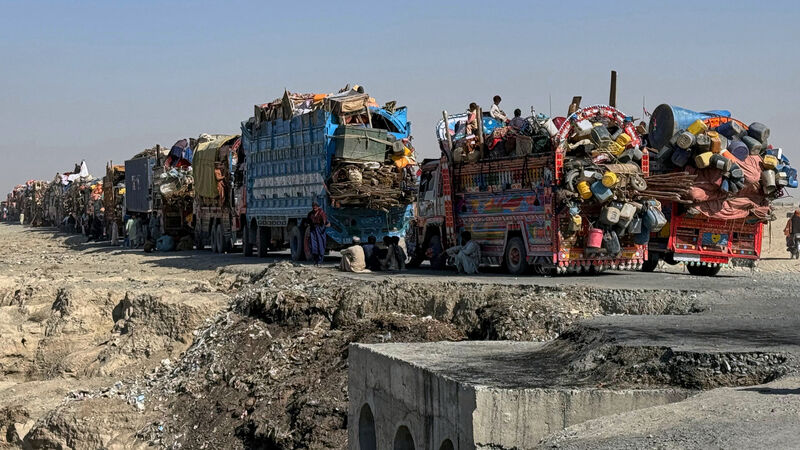Pakistan-Afghanistan peace talks fail amid rising border tensions

Afghan refugees wait to leave Pakistan for their homeland. Picture: H Achakzai/AP
Peace talks between Pakistan and Afghanistan in Istanbul have ended without agreement, with each side blaming the other for the breakdown in negotiations aimed at easing border tensions and upholding a fragile ceasefire, officials said on Saturday.
Tensions have escalated in recent weeks following deadly border fighting that killed dozens of soldiers and civilians.














